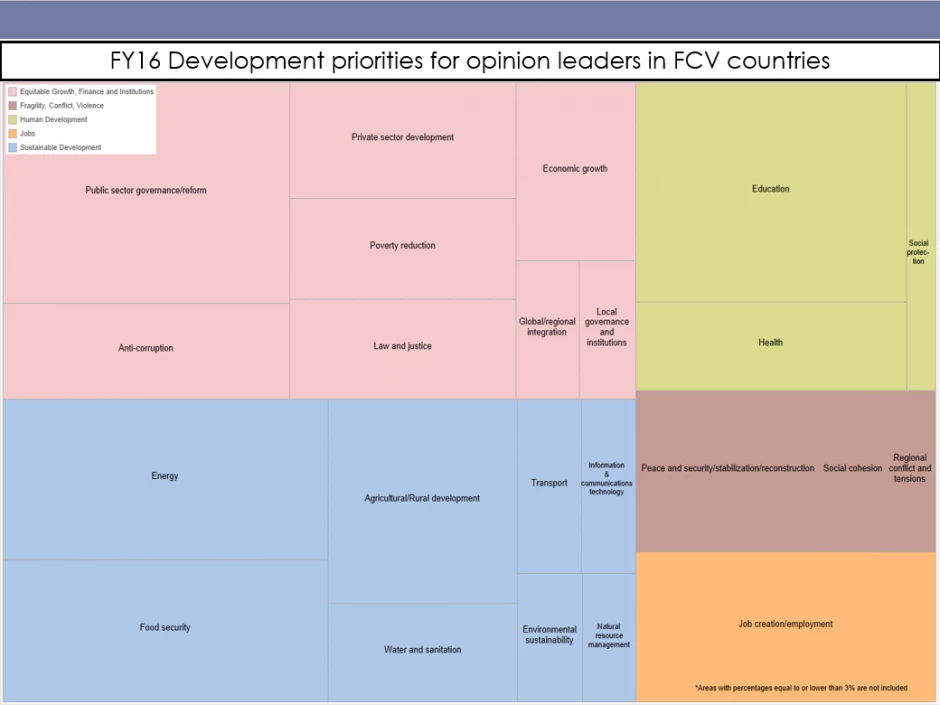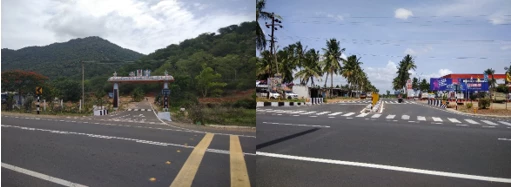The fragile and conflict situations in which the World Bank Group supports development programs are seen as a top and increasingly urgent strategic priority for the institution and donors, and the Bank Group is increasing attention and focus there (note the WBG’s paper “The Forward Look”). The statistics related to fragile situations are staggering. Two billion people live in countries where development outcomes are affected by fragility, conflict and violence. Nearly fifty percent of the global poor is predicted to be living in fragile and conflict affected situations by 2030. Terrorism incidents have increased and forced displacement is a global crisis.
The WBG pays close attention to what its key stakeholders in client countries think about development and the work of the Bank through its Country Opinion Survey program - a mandated survey effort that assesses the views of influential across the Bank’s client countries annually (40+ countries/year on three year cycles). By keeping ‘ears to the ground’ it can understand what the institution’s key stakeholders think about their own development situations, the Bank’s work within this context, and how the Bank can increase its value in these increasingly difficult and complicated situations. The data below reflects opinions from more than one thousand opinion leaders in FCV countries.
Here is what a random sample of opinion leaders in these countries (government, media, academia, private sector, civil society) have to say about their development challenges and the World Bank’s role within this context. The FY data were collected between July 2015 and July 2016.
First, stakeholders’ views of key development priorities in their countries have shifted dramatically so that the findings are almost prescient considering the current severe food security issues in Sub-Saharan Africa. The dramatic increase in emphasis on food security and governance is worth consideration:
The priorities are amplified when seen through the context of the World Bank’s sectoral structure:
With concern about food security rising in FCV countries (primarily those in the Africa region), it should not surprise that agriculture and rural development are considered the key to poverty reduction.
Where and how does the Bank Group best fit into this landscape according to opinion leaders? Mostly where the survey respondents report that their concerns lie.
With increased focus on growth when stakeholders consider which sectors would benefit most from WBG support (see chart above), it is not surprising to see that when opinion leaders consider how Shared Prosperity might be achieved in their countries, growth is now at the top of the list.

And how can the World Bank Group best to work with partners and donors in FCV countries in the midst of a record IDA18 replenishment? Stakeholders hold strong views about where the Bank Group adds value:
The Bank Group will continue this trending in FY 17 with approximately eight surveys planned in FCV countries globally.








Join the Conversation